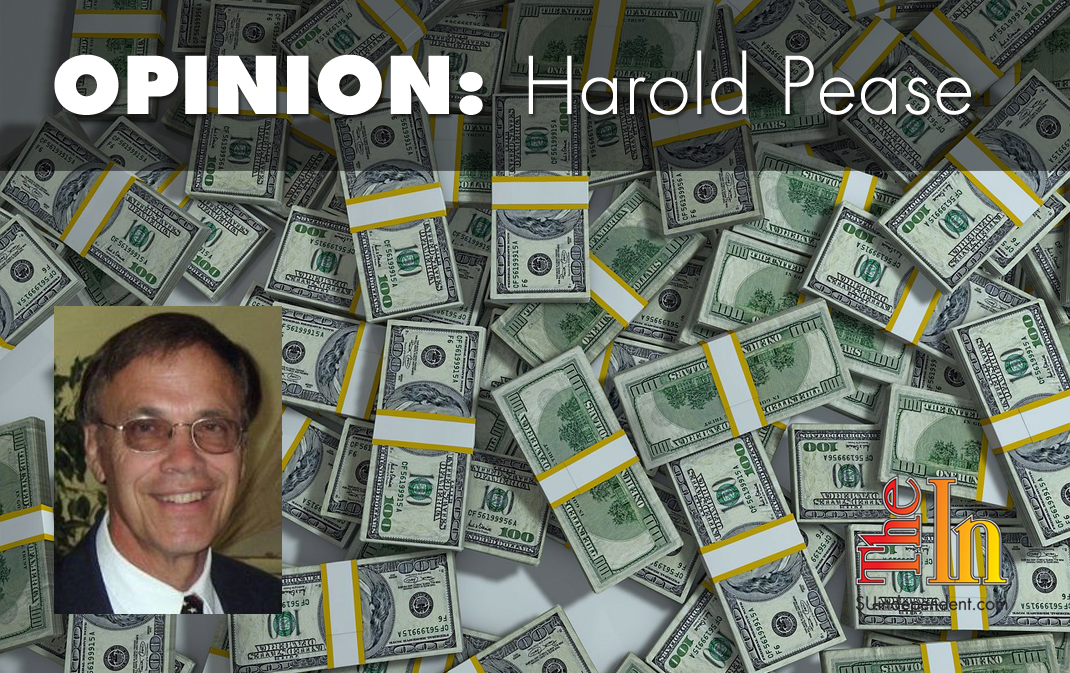
How to stop billionaire election buyouts
Presently, money for elections can come from countries, states, counties, or districts other than from where the candidate will serve, allowing outside sources, those of wealth — even billionaires — to buy influence. This often diminishes the power of the citizens themselves to choose their own representatives.
Moreover, those holding “safe seats,” as for example Democrat Nancy Pelosi and Republican Kevin McCarthy, can either buildup gigantic arsenals to “nuke” a popular contender — or worse, hand off their unneeded donations to a likeminded candidate in another state to favorably impact elections often adverse to the will of its citizens. These outside influences have to stop.
More funding allows more signs and literature to be distributed and more newspaper, radio, and television ads to destroy your opponent or get your message out, resulting in a higher probability of winning. The candidate with the most money and publicity usually wins, and the rich, by their funding, select contenders long before the people vote; therefore, they dominate the results. In many cases, more money originates from outside a voting district than within. If no candidate could receive money or influence from outside his district, it would stop much influence peddling.
I advocate for ending outside influences in our nation’s elections and offer the following new amendment to the Constitution: “All election funding, outside candidate’s personal wealth, (individuals or organizations), in all federal elections shall originate from eligible voters in the district served by the election and donated since the last election for the same office.”
Billionaires or organizations could still fund causes, but not candidates. Propositions are a part of most elections and can be considered without attachment to a candidate. This would not stop, nor is it intended to stop, the funding or creation of ads for or against a candidate, or ballot issues, funded by perspective voters within the district.
Under this amendment, the 1996 Bill Clinton campaign could not have received money from China to influence the election, nor from any individual ineligible to vote for president, nor could Clinton Foundation money be used to influence elections as much of that money comes from international contributors. Some of us still remember the Bill Clinton Chinese Fundraising Scandal involving DNC finance chairman John Huang and Chinese nationalist Johnny Chung. The DNC was forced to return more than $2.8 million in illegal or improper donations from foreign nationals, largely from China, to gain favor in the Clinton Administration.
Neither could the Koch brothers, Charles and David, who fund many Republican Party candidates on the right side of the political spectrum, and George Soros or Tom Steyer, who fund Democratic Party candidates on the left, influence any federal contest in which they cannot personally vote. This amendment would limit the billionaire class to the “purchase” of only their congressmen or senators — not a large group of them.
Both Soros and Steyer bankrolled far-left Andrew Gillum’s Florida campaign for governor, hoping to flip the state from red to blue and anticipating that the resulting electoral count increase could sway the nation for decades. According to Laura Ingraham, Gillum “courted Soros’ organizations and spoke at a number of their gatherings. When they met at San Francisco [Steyer’s home town], he promised to back Gillum’s gubernatorial run.” Steyer “funneled about $800,000 into the Get Out the Vote initiative prior to the Gillum run.” An activity that was targeted to get Gillum elected hence would be denied Steyer with the new amendment, as with most of the $30 million he promised to spend on the midterms.
Congressmen from “safe” districts could not “hand off” their unneeded donations to a likeminded candidate in another district. Nor could they hold over funding from previous victories to “nuke” a future opponent. Contributions are a form of voting normally intended for this candidate only and for this election only, and they could only be accumulated since the last election for that office. Laws presently limit the amount of individual contributions, but the rich find loopholes in donating, as in the case of Gillum.
The rich have been involved in influencing elections at least since the 1896 “giants of the Industrial Revolution” buyout of William McKinley for president when they used their money to bury opponent William Jennings Bryan. This amendment would not have stopped that as all citizens elect the president — only a rigorous enforcement of present law governing individual contributions could do that.
Nor would it have stopped J.P. Morgan’s 1915 purchase of the 25 leading newspapers in the United States, establishing “Morgan editors” over each, presumably to influence public opinion favorable to his interests. Nor would it have prevented Morgan and David Rockefeller’s 1921 creation of The Council on Foreign Relations to steer the country into “Wall Street” dominance and global government, which now is self propelling although its founders are deceased. The CFR has provided much of the leadership of both major political parties and major news outlets.
Nor will it today stop all of George Soros’ 11 major influence groups, some of which sponsor activities that border on treason. Funding Antifa, Kavanaugh “hearing disruptors,” and those accosting Senate committee members may have to wait for other solutions. But the amendment will prevent most billionaire election buyouts. Expect enormous billionaire opposition.
Articles related to “How to stop billionaire election buyouts”
Billionaire Tom Steyer replaces Soros as prominent leftist funder



